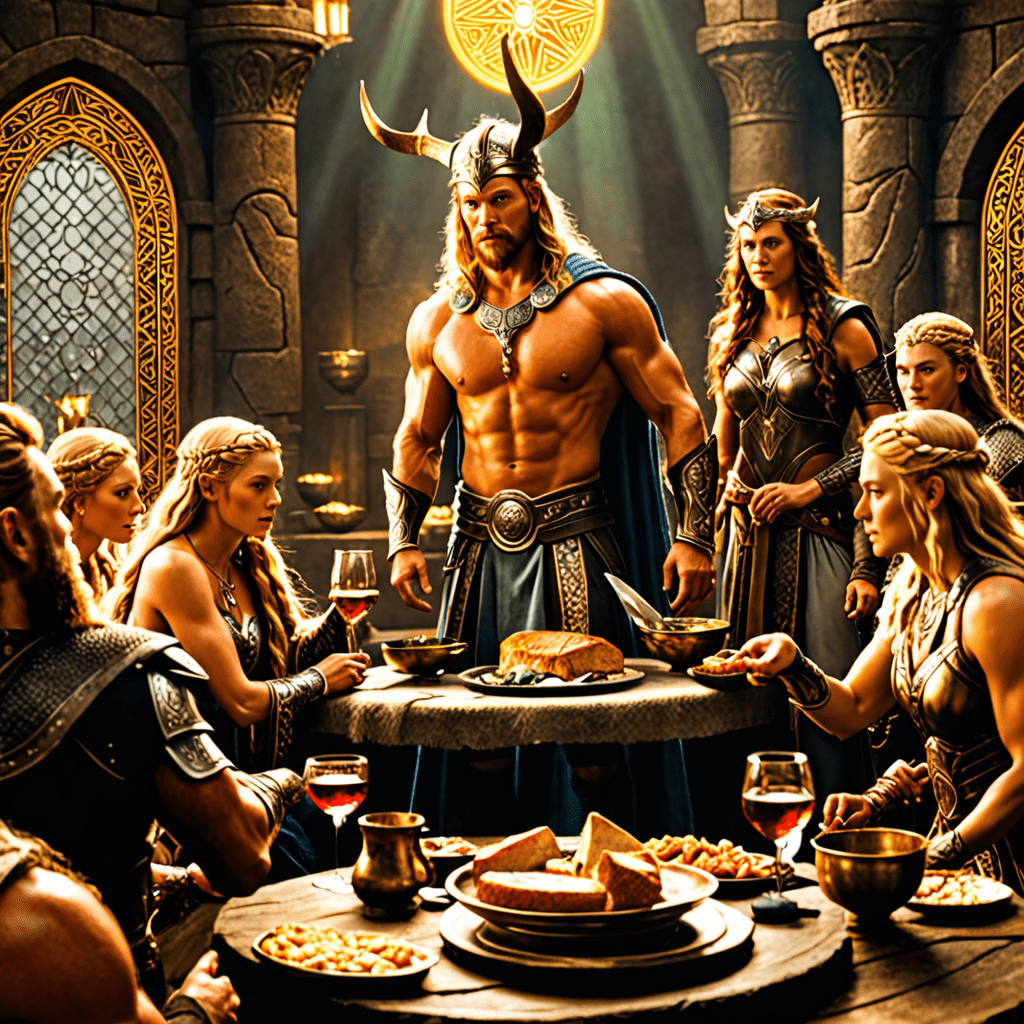The Importance of Hospitality in Norse Mythology
In Norse mythology, hospitality, known as “gifting” or “reciprocity,” plays a fundamental role in the lives of gods, giants, and humans. The value placed on hospitality is seen as a noble virtue, shaping interactions and relationships across the mythological realm.
The Concept of Hospitality in Norse Culture
The Norse people believed that offering hospitality to strangers was not just a social custom but a sacred duty. Guests were seen as bringing blessings or potential dangers, so it was essential to treat them with kindness and generosity. This concept is deeply intertwined with the Norse sense of honor, known as dísir, where a person’s reputation and standing in the community depended on their treatment of guests.
Examples of Hospitality in Norse Mythology
One of the most famous examples of hospitality in Norse mythology is the tale of the god Odin traveling the mortal realm in disguise to test the hospitality of humans. Those who showed kindness to Odin were rewarded, while those who failed to offer hospitality faced dire consequences.
Another well-known story is the tale of Thor visiting the home of the giant Útgarða-Loki. Despite the challenges set by the giant, Thor and his companions, including Loki and Þjálfi, displayed the importance of being gracious guests, and their actions ultimately revealed their true identities and strengths.
The Meaning and Lessons of Hospitality in Norse Mythology
Through stories and myths, Norse mythology teaches valuable lessons about the significance of hospitality. It emphasizes the interconnection between individuals, highlighting the impact of one’s actions on others. It also underscores the concept of reciprocity, showing that kindness and generosity towards others can lead to reciprocal acts of kindness and goodwill.
In conclusion, hospitality in Norse mythology is not merely a form of politeness; it is a core principle that reflects the values of community, honor, and respect. By understanding and upholding the importance of hospitality, we can appreciate the depth of interactions portrayed in Norse myths and apply these timeless lessons to our own lives.
FAQs about the Importance of Hospitality in Norse Mythology
What is the significance of hospitality in Norse mythology?
Hospitality, known as “Gestirnauðr” in Old Norse, was a sacred duty in Norse culture. It symbolized respect, generosity, and protection for guests, a value upheld by gods and mortals.
How did hospitality play a role in Norse mythology?
In Norse mythology, hospitality was crucial as it determined one’s honor and fate. The gods often disguised themselves as travelers to test mortals’ hospitality, rewarding kindness and punishing rudeness.
Which Norse gods exemplified hospitality?
The Norse god Odin is often depicted as a wanderer testing mortals’ hospitality. Additionally, the god Thor, associated with protection, also emphasized the importance of hospitality through his journeys.
What were the consequences of failing to provide hospitality in Norse mythology?
Failing to provide hospitality in Norse mythology often led to dire consequences. It was believed that mistreating guests could result in the wrath of the gods, curses, or a loss of honor and reputation in the community.
How does the theme of hospitality in Norse mythology resonate in modern culture?
The theme of hospitality in Norse mythology continues to influence modern culture. It serves as a reminder to treat guests with kindness and respect, highlighting the enduring value of hospitality in society




